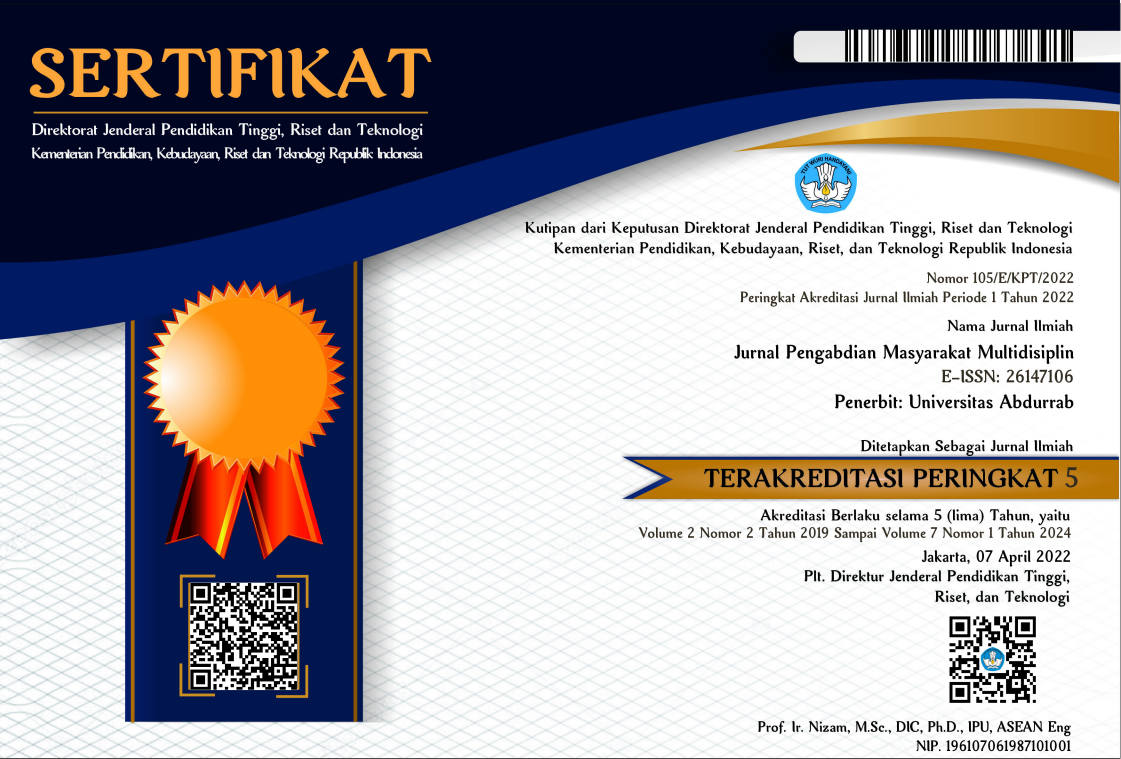SITUASI KESEHATAN MASYARAKAT DI KECAMATAN KULIM KELURAHAN KULIM 2022
DOI:
https://doi.org/10.36341/jpm.v5i3.2476Keywords:
Health check every 6 months, Public HealthAbstract
The Healthy Indonesia Program is implemented with 3 main pillars, namely a healthy paradigm, strengthening health services and national health insurance: 1) the pillars of a healthy paradigm are carried out with a strategy of mainstreaming health in development, strengthening preventive promotions and community empowerment; 2) strengthening of health services is carried out with a strategy of increasing access to health services, optimizing the referral system and improving the quality of health services, using a continuum of care approach and health risk-based interventions; 3) Meanwhile, national health insurance is carried out with a strategy of expanding targets and benefits as well as quality control and cost control (Kemenkes RI 2019). The current state of public health in general has not been able to meet the expected goals due to a lack of public understanding regarding health checks every 6 months. Therefore, an assessment of health problems was carried out which took place from January 26, 2022 to February 10, 2022 which was carried out in the Kulim Village, Kulim District. The purpose of this activity is to analyze or see the public health picture in the Kulim sub-district, Kulim sub-district, hold 2022. The results of the data collection obtained 5 (five) joint problems raised, namely 1. Health checks every 6 months, 2. No physical activity, 3. No using a mask, 4. Not washing hands, 5. Not consuming fruits and vegetables. So that further community empowerment activities will be carried out to overcome these problems
Keywords: Kulim village, health check every 6 months, Public Health
Downloads
Downloads
Published
How to Cite
Issue
Section
License
1. Copyright of all journal manuscripts is held by the Jurnal Pengabdian Masyarakat Multidisiplin.Formal legal provisions to access digital articles of electronic journal are subject to the provision of the Creative
2. Commons Attribution-ShareAlike license (CC BY-NC-SA), which means that Jurnal Pengabdian Masyarakat Multidisiplin is rightful to keep, transfer media/format, manage in the form of databases, maintain, and
3. publish articles.Published manuscripts both printed and electronic are open access for educational, research, and library purposes. Additionally, the editorial board is not responsible for any violations of copyright law.
licensed under a Creative Commons Attribution-ShareAlike 4.0 International License.







